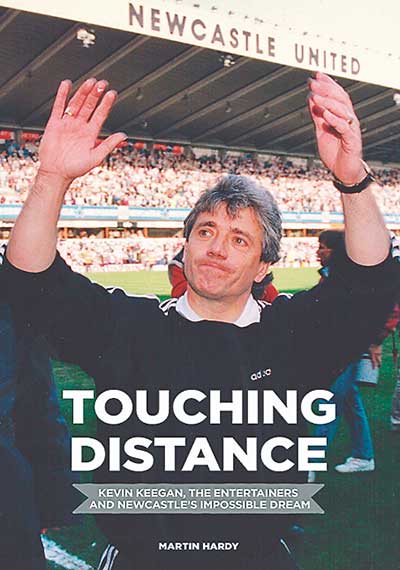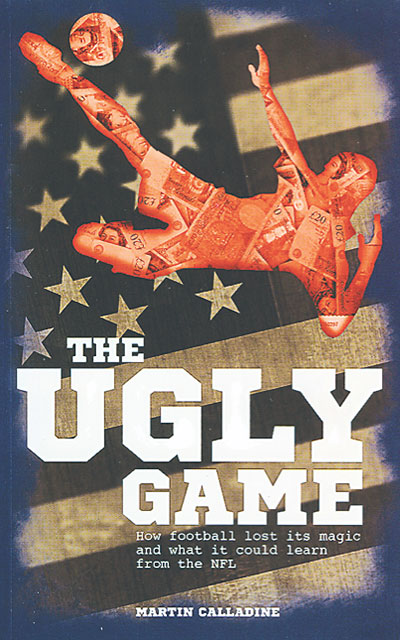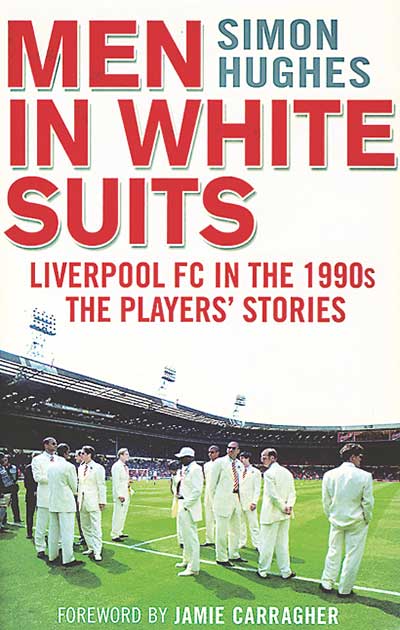Contemplating using a Fat Rascal to dislodge a ball from a tree, magazine editor Andy Lyons, writer Harry Pearson and host Daniel Gray discuss footballing light entertainers, from the tantalising conversion of Bobby Hoy via Spike Rawlings of Barrow and the Peter Beardsley pantomime experience. WSC Deputy Editor Ffion Thomas takes us inside the pages of magazine issue 429, Record Breakers brings Wearside wailing and we continue our sprightly feature, The Final Third, in which a guest contributes a match, a player and an object to the WSC Museum of Football. Joining Dan as our visiting curator this time is the writer, broadcaster and West Brom fanatic Adrian Goldberg.
Search: ' Peter Beardsley'
Stories
The steady increase in the number of permitted substitutes has made one of the most exciting parts of the game an ever rarer occurrence
 Kevin Keegan, the entertainers & Newcastle’s impossible dream
Kevin Keegan, the entertainers & Newcastle’s impossible dream
by Martin Hardy
De Coubertin Books, £18.99
Reviewed by Paul Brown
From WSC 345 November 2015
The 1995-96 Premier League season should not be fondly remembered on Tyneside. This was the year that Kevin Keegan’s Newcastle United raced to a seemingly unconquerable 12-point lead, only to be ruthlessly overhauled by a formidable Manchester United. Yet it remains an enduringly popular “what if?” subject of conversation among Newcastle fans. It was the closest Newcastle have come to winning the League since 1927 and the team, labelled the Entertainers, were the best the club have had since the 1950s.
Martin Hardy’s Touching Distance is an oral history of Newcastle’s nearly season, 20 years on, built around a series of interviews with Keegan and his Entertainers, including Peter Beardsley, Les Ferdinand, Rob Lee and Philippe Albert. It’s a bittersweet story – and some Newcastle fans may choose to stop reading shortly before the end. But it’s also a celebration of a team and a manager that restored pride and belief in a club who were, when Keegan arrived as manager in 1992, on the verge of relegation to the third tier.
Keegan was raised by a Newcastle-supporting father, and wore the black-and-white stripes during the early 1980s. “Having played there for two years I knew exactly what they wanted,” he says. “It’s very simple really. They work hard all week, they have a couple of brown ales and they want to go to the match and they want to see a team in black and white give everything they’ve got to win a football match and entertain them.”
Such romanticism is typical of Keegan, and viewed by critics as a flaw. But a lot of criticism aimed at Keegan is revisionist and unwarranted. The perception that his attacking team was defensively naive seems particularly unfair, perhaps exaggerated by reruns of the extraordinary 4-3 defeat at Anfield. Over the course of the season, Newcastle conceded only two goals more than Manchester United.
Terry McDermott, Keegan’s assistant, describes the Anfield defeat as “fucking sickening”. “It scarred Kevin,” he says. “I’m convinced of that. It scarred him.” Then came Keegan’s famous “I will love it if we beat them” outburst, aimed at Alex Ferguson. Pundits said Keegan had cracked, a victim of Ferguson’s mind games. “Load of bollocks, absolute bollocks,” says McDermott, who phoned Keegan afterwards. “I said, ‘What the fuck was that?’ He said, ‘Ah, sod him.’ At the time he didn’t really like Ferguson.”
Although the title race remained open until the last day of the season, a home draw for Newcastle and an away win for Manchester United gave the latter a four-point advantage, and meant Newcastle finished second. Popular opinion says Newcastle “blew it”, but Keegan provides a more reasonable explanation: “Man United were the better team.” Winning isn’t everything in football, and Newcastle fans should enjoy this entertaining account of a season in which their team ultimately fell short. “With a bit more luck we might have won it,” McDermott says, “and Man United wouldn’t have missed one trophy, would they?”
 How football lost its magic and what it could learn from the NFL
How football lost its magic and what it could learn from the NFL
by Martin Calladine
Pitch £12.99
Reviewed by Roger Titford
From WSC 341 July 2015
Martin Calladine is a disillusioned football fan who is going over to the ugly game that is American football. On his way out he offers observations on the differences between the two sports in 20 loosely connected short essays. He is an intelligent consumer of the sports, rather than a business insider or supporter activist, and brings some interesting perspectives to bear on the current failings of football. But The Ugly Game is not even a wish list, let alone a manifesto for change. There is no rigour in the comparisons; he uses the Premier League, English football and football in general interchangeably. The hugely differing structures and contexts that surround the NFL and Premier League are ignored. Calladine has a desirable destination in mind but no means of direction towards it.
The value of The Ugly Game is the fuel he provides for a more actively minded reformer. In particular there is a helpful analysis of what makes that curious billionaires’ socialist collective called the NFL tick. In entertaining fashion he unpicks the virtues of the salary cap, the draft transfer system, regulated ownership and the Rooney rule that enhances the chances of ethnic minority coaches. All of this helps to create a far more level playing field in the NFL than we see in the Premier League.
The concept of fairness is at the heart of Calladine’s thinking and he illustrates the lack of it and the need for it in apt ways. There is no prize money for winning the Superbowl but the cumulative effect of decades of prize money in the Champions League has distanced a few clubs from all the rest. Kids in the park having a pick-up game would never put all the best players on one side.
But there is more than one kind of fairness. There is no room in the NFL’s cartel of 32 clubs for a fast-rising Swansea, Hull City or Bournemouth. England and Wales support and give access to over 100 professional clubs for a population of 50 million, a sixth of the size of the US. While Calladine looks forward to more American football at Wembley he makes no reference to the, perhaps larger, trade going the other way – the strong and recent growth of soccer in the US.
There are strong chapters on the misuse of statistics and the weak analysis proffered by Alan Hansen and Alan Shearer compared with what US audiences receive and he has the occasional arresting phrase, such as “identikit tattooed greyhounds” to describe the modern footballer. Yet despite taking this high ground the whole work is disfigured by a peppering of snide asides about Pelé’s potency, Peter Beardsley’s looks, Titus Bramble’s brains and so on. Random photos with lame captions that drift like tumbleweed undermine what is an insightful work on fairness and power. One expects there will be more in this canon of “modern football is rubbish” from those freshly deserting the game. Indeed this is not the only football book with this title currently on sale.
 Liverpool FC in the 1990s – the players’ stories
Liverpool FC in the 1990s – the players’ stories
by Simon Hughes
Bantam, £18.99
Reviewed by Rob Hughes
From WSC 340 June 2015
Among the insightful voices in Simon Hughes’s book, John Scales cuts to the issue most succinctly. “Money changed the game and it’s no surprise that a club with socialist principles was the first to fall by the wayside,” he says, referring to the ethos promoted by Bill Shankly, the manager who revolutionised the club in the 1960s. The 1990s was a time of rapid change in English football, where big clubs became global businesses, revenue flooded in from international TV deals and wages ballooned. This increased market competition, however, was just one of the many factors in Liverpool’s decline.
Much like its predecessor, 2013’s Red Machine: Liverpool FC In The 1980s, Hughes’s tome tells the story through interviews with a number of former players and managers. Alongside Scales we have Jan Molby, Jamie Redknapp, Jason McAteer, Graeme Souness and Roy Evans, among others, all of whom look back on their Liverpool tenure with a variable mixture of pride, regret and, occasionally, a little bitterness.
The title of Men In White Suits recalls the team’s ill-advised Wembley walkabout before the 1996 FA Cup final, decked out in flashy Armani gear, and provides the ready metaphor for Liverpool’s failings under Evans. Here was a team capable of the most flamboyant football, but who seemed to lack the required focus and discipline to win trophies: all silk and no steel.
What quickly becomes clear, sifting through the various testimony, is that Liverpool were undone by their own past success. Coaches and management still relied on the same procedures, diets and training methods (even continuing to use the rotting wooden boards at the Melwood training ground for shooting practice) that had sustained the club throughout the 1970s and 1980s. Other clubs, meanwhile, had moved with the times and had adopted a more sophisticated ideology. And when it came to the transfer market (shipping out Peter Beardsley and others before their prime; investing in the likes of Julian Dicks, Paul Stewart and Nigel Clough) it all got pretty embarrassing.
The conclusions of those involved are often fascinating. Both Redknapp and Molby agree that Souness’s management style was unnecessarily aggressive, intent on changing too much too soon. Souness himself, with engaging candour, concedes that he blew his chance and that it was the right job at the wrong time. Evans, too, is big enough to admit some shortcomings, not least the gung-ho attitude to attacking football when grinding out results was often the better option. Although he bristles at the suggestion that he was too much of a nice guy to rule effectively.
The potential to reclaim old glories was certainly there, assert McAteer and Scales, but they attribute Liverpool’s inconsistency to the lack of experienced, “streetwise” leaders on the pitch. And, for fans such as myself, it makes me wince to read how Souness turned down the chance to sign both Peter Schmeichel and Eric Cantona before they were anywhere near Manchester United’s radar. Inconstancy, woeful transfer dealings, lack of leadership and an inability to compete with the top clubs around them. Thank God those days are over.